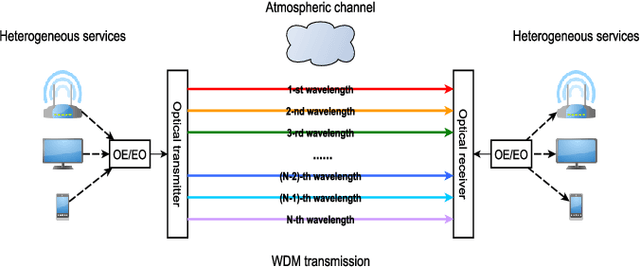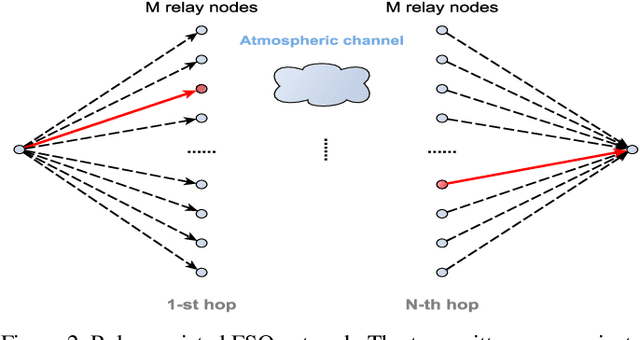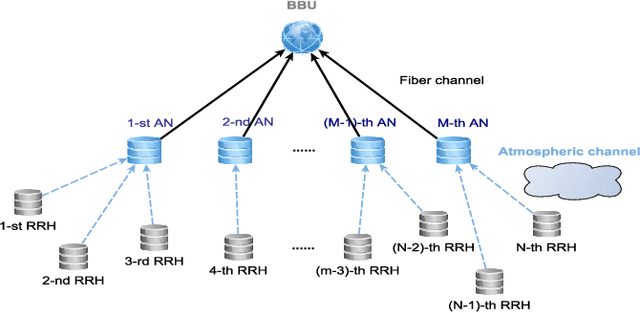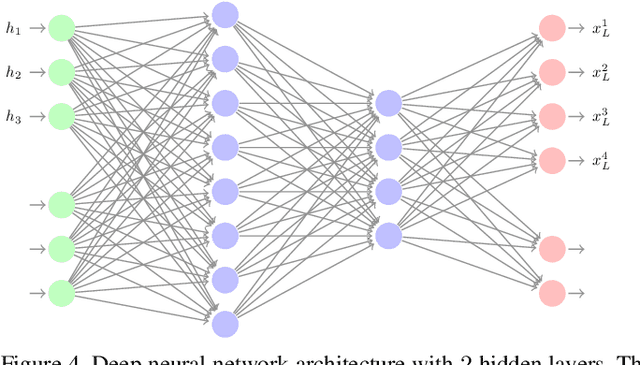Resource Allocation via Model-Free Deep Learning in Free Space Optical Networks
Paper and Code
Jul 27, 2020



This paper investigates the general problem of resource allocation for mitigating channel fading effects in Free Space Optical (FSO) networks. The resource allocation problem is modelled with a constrained stochastic optimization framework, which we exemplify with problems in power adaptation and relay selection. Under this framework, we develop two algorithms to solve FSO resource allocation problems. We first present the Stochastic Dual Gradient algorithm that solves the problem exactly by exploiting the null duality gap but whose implementation necessarily requires explicit and accurate system models. As an alternative we present the Primal-Dual Deep Learning algorithm, which parametrizes the resource allocation policy with Deep Neural Networks (DNNs) and optimizes via a primal-dual method. The parametrized resource allocation problem incurs only a small loss of optimality due to the strong representational power of DNNs, and can be moreover implemented in an unsupervised manner without knowledge of system models. Numerical experiments are performed to exhibit superior performance of proposed algorithms compared to baseline methods in a variety of resource allocation problems in FSO networks, including both continuous power allocation and binary relay selection.
 Add to Chrome
Add to Chrome Add to Firefox
Add to Firefox Add to Edge
Add to Edge